ARCHIVE NEWS
August 2021
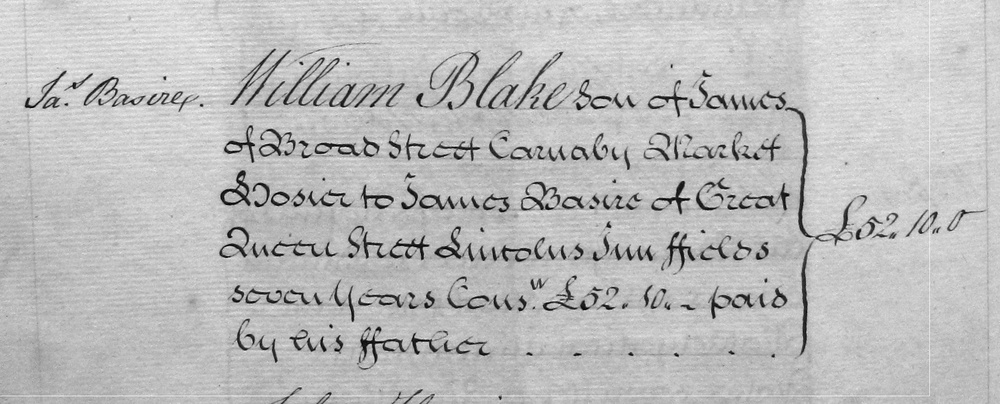
James Basire
4 AUGUST 2021
This day in the archive: 4th August
On the 4th of August, 1772, William Blake was bound as an apprentice to the engraver James Basire. Blake, of course, went on to become one of the most important visionary artists and poets in England. Basire's story is less well-known, but as a Stationer, a leading engraver of his day, and a significant early influence on Blake, it's worth telling here.
Main image: William Blake's apprenticeship to James Basire, recorded on 4th August 1772. Apprentice register 1763-1786, Stationers' Company Archive TSC/1/C/05/01/04
READ MOREJuly 2021
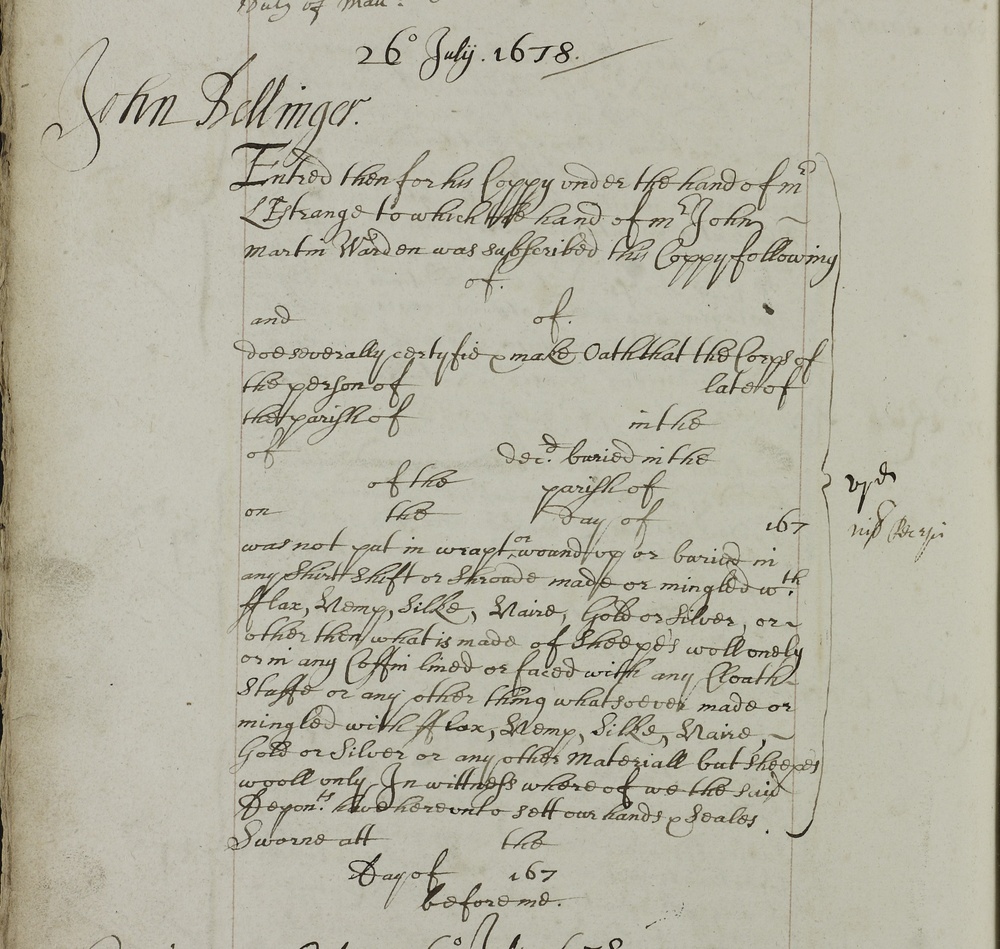
Buried in Woollen
26 JULY 2021
This day in the archive: 26th July
On 26th July 1678, an unusual entry was recorded in the Stationers' Register. It's the wording of an affidavit form, to be completed by two witnesses who 'doe severally certifie and make oath that the corps of the person of ... late of the parish of ... was not put in, wrapt or wound up or buried in any shirt, shift or shroude made or mingled with flax, hemp, silke, haire, gold or silver, or other then what is made of sheepe's woll onely.' The affidavit goes on to specify that the coffin must also be lined in wool.
Main image: Entry of copy for form of words of affidavit, 1678. Stationers' Company Archive, Liber F TSC/1/E/06/05
READ MORE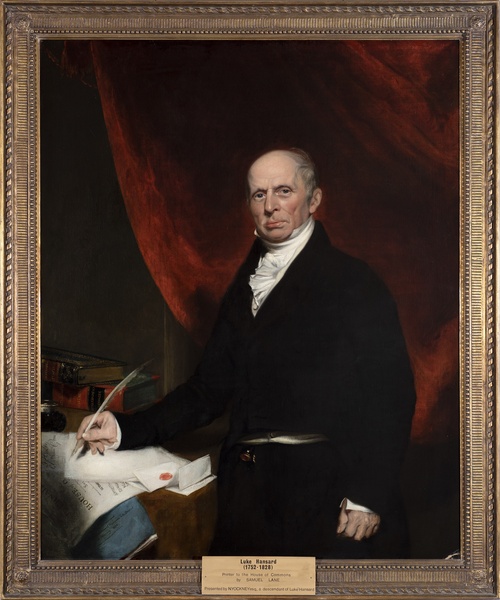
Luke Hansard
5 JULY 2021
This day in the archive: 5 July
Luke Hansard, printer to the House of Commons, was born on the 5th July 1752. An exceptionally successful printer who established a thriving family business, he joined the Stationers' Company as a Liveryman in 1799. He endowed two charitable bequests, one for 'needy printers over the age of 65', the other for a 'neatly bound Church of England prayer book' to be given to every youth bound at the hall. He also ensured that all three of his sons were apprenticed through the Company. Two generations later, his grandson, Thomas Curson Hansard II served as Master to the Stationers' Company in 1886. It was Thomas who presented the Company with Samuel Lane's portrait of Luke, which now hangs in the Court Room of Stationers' Hall.
Main image: Portrait of Luke Hansard by Samuel Lane, Stationers' Company collection.
READ MOREJune 2021

Apprenticeship of Nathaniel Ponder
2 JUNE 2021
This day in the archive: 2 June
On the 2nd of June 1656, Nathaniel Ponder was apprenticed to the bookseller and Stationer Robert Gibbs. Ponder went on to have an eventful career in publishing. He oversaw the publication of several nonconformist works of divinity and political pamphlets. His dissenting views sometimes brought him into conflict with the authorities, and he was notoriously imprisoned for publishing a seditious work by Andrew Marvell. Today, he is best remembered as the publisher of The Pilgrim's Progress by John Bunyan
Main Image: Record of Ponder's apprenticeship, .Apprentice register volume 1, 1605-1666, Stationers' Company Archive, TSC/1/C/05/01/01
READ MOREMay 2021
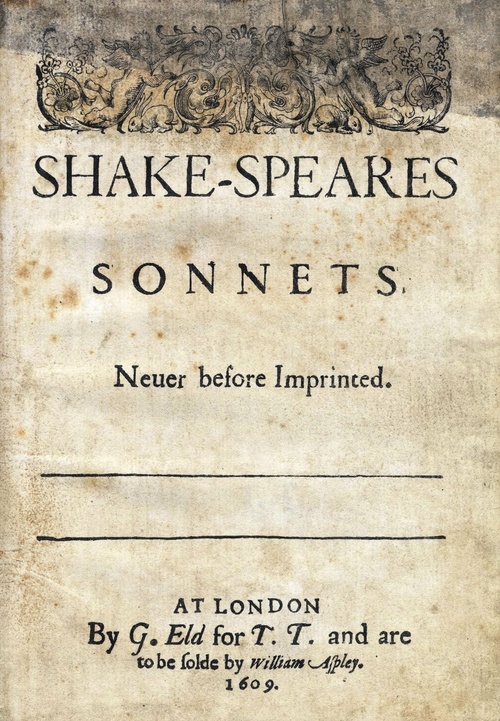
First publication of Shakespeare's Sonnets
20 MAY 2021
This day in the archive: 20 May
On 20 May 1609, a bookseller named Thomas Thorpe entered for his copy 'a booke called Shakespeares sonnetts'. The sonnet, imported to England from Italy during the Renaissance exchange of ideas, was popularised by Elizabethan poets such as Sir Philip Sidney and Edmund Spenser. Within the sonnet's formal constraints, Shakespeare introduced ideas and imagery which subverted the conventions of Elizabethan love poetry. ‘My mistress’ eyes,' declared Sonnet 130, 'are nothing like the sun’.
Main image: William Shakespeare - Shake-Speare's Sonnets, quarto published by Thomas Thorpe, London, 1609, http://www.folger.edu/imgdtl.cfm?imageid=642&cid=926
READ MORE
John Murray publishes Samuel Taylor Coleridge
11 MAY 2021
This day in the archive: 11 May
The 11th of May 1816 saw the publication of Kubla Khan. The poem has captured the imagination of readers ever since, and has crept into popular culture. In Orson Welles's Citizen Kane, for example, the eponymous newspaper magnate names his mansion Xanadu, epitomising its extravagance and luxury - and his own hubris.
Main image: Entry from Stationers' Registers, 11 May 1816. Stationers' Company Archive, TSC/1/E/06/17
READ MOREApril 2021
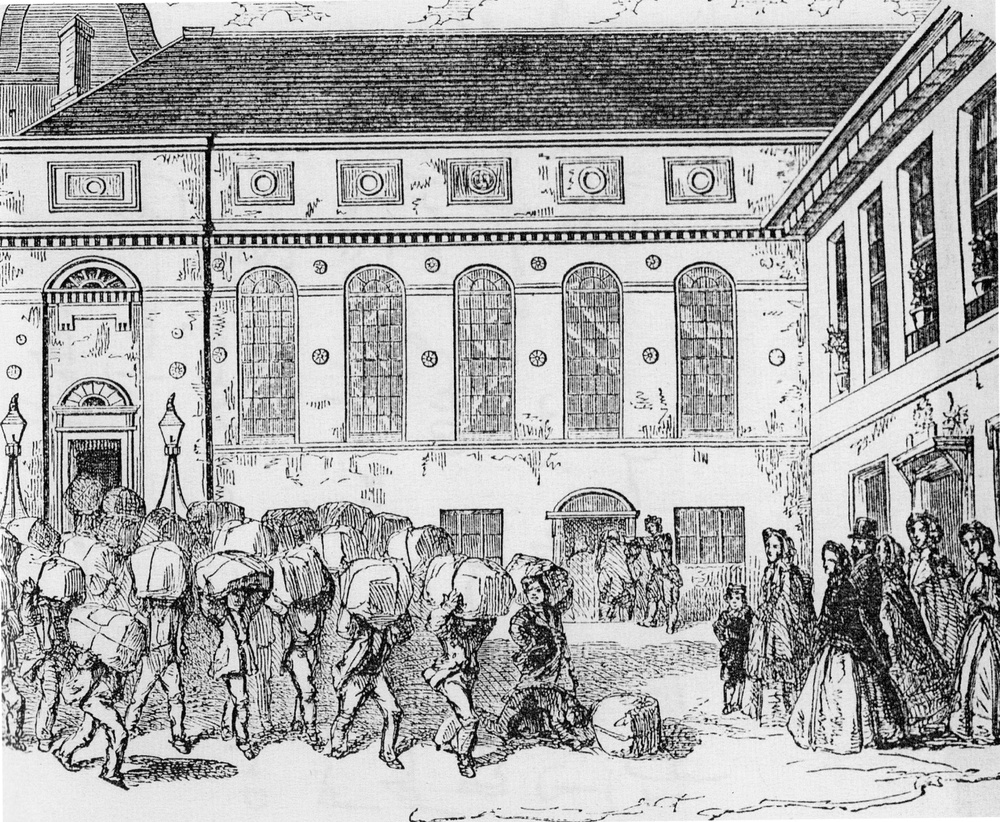
Archive Evening 2021: Print, Profit and People
22 APRIL 2021
Our next Archive Evening will be a virtual event on Monday 26 April at 6pm. For more details, and to register, go to our events page at: https://www.stationers.org/events/detail/5994.
To support the event, we have created an online exhibition, which you can view here: https://www.stationers.org/company/archive/print-profit-and-people-an-exhibition
Hope you can join us for what promises to be a fascinating evening!
March 2021
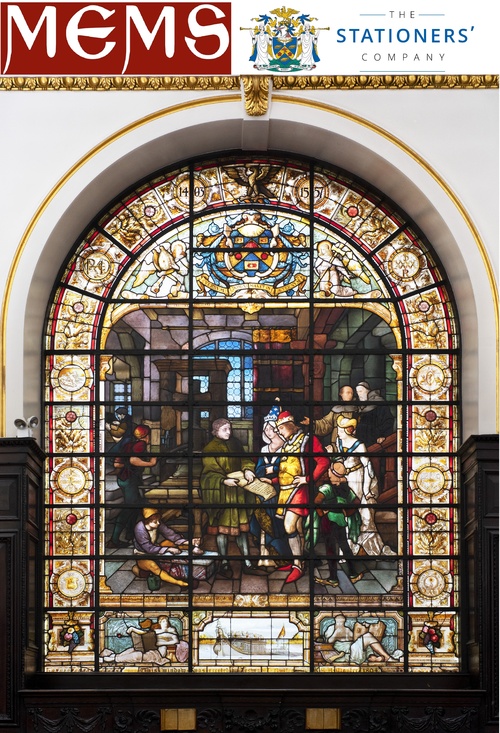
EARLY MODERN PRINT HISTORY ROUND-TABLES
22 MARCH 2021
We're delighted to anounce a forthcoming series of online discussions, organised by the University of Newcastle's Medieval & Early Modern Studies Research Group in conjunction with the Stationers' Company Archive.
READ MORE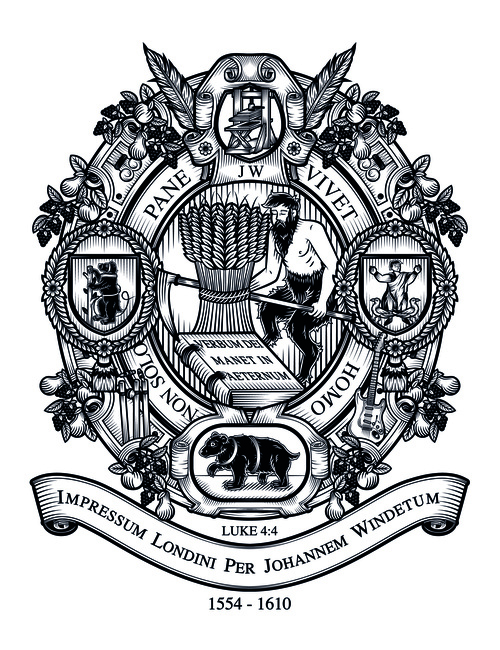
Adventures in Family Research
16 MARCH 2021
Lockdown has presented archivists with unforeseen problems: restricted access to physical collections and closed reading-rooms have required us to find new ways of maintaining contact with our research communities. But it's also been a chance to reach out virtually to people who might not previously have considered visiting an archive. And it's been heartening to see that, despite the uncertainty and anxiety of our current situation, public interest in our collections has not diminished. Online enquiries have increased over the last year. Among our new researchers are people who decided to use lockdown to tackle that perennial bugbear of household chores, clearing out the attic. In the process, they stopped to wonder about the history behind hoarded personal effects - and found that, even if they themselves weren't Stationers, their enquiries led them to our Archive. One such is Michael Windet, who shares with us here the story of his personal voyage into the past.
READ MORE
Sir Thomas Bodley and the Library of Legal Deposit
2 MARCH 2021
This Day in the Archive: 2 March
The 2nd of March, 1545, is the date of birth of Sir Thomas Bodley. An erudite scholar and accomplished diplomat, he is perhaps most widely remembered today as the founder of Oxford's Bodleian Library.
Leading image: Detail from 'Philanthropists: twenty portraits of public benefactors'. Engraving by J.W. Cook, 1825.. Credit: Wellcome Collection. Attribution 4.0 International (CC BY 4.0)
READ MOREFebruary 2021

Henry Baldwin, Eighteenth-Century Newspaperman
21 FEBRUARY 2021
This Day in the Archive: 21 February
February 21st marks the death, in 1813, of Henry Baldwin, founder of a family dynasty of newspaper proprietors. Baldwin was apprenticed to Stationer Edward Say in 1749, and in 1756 was called to the Livery on the day he attained his Freedom of the Company by servitude. Not long afterwards, in March 1761, Baldwin published the first issue of the St James's Chronicle, a triweekly evening paper which remained in print until the end of the nineteenth century.
READ MORE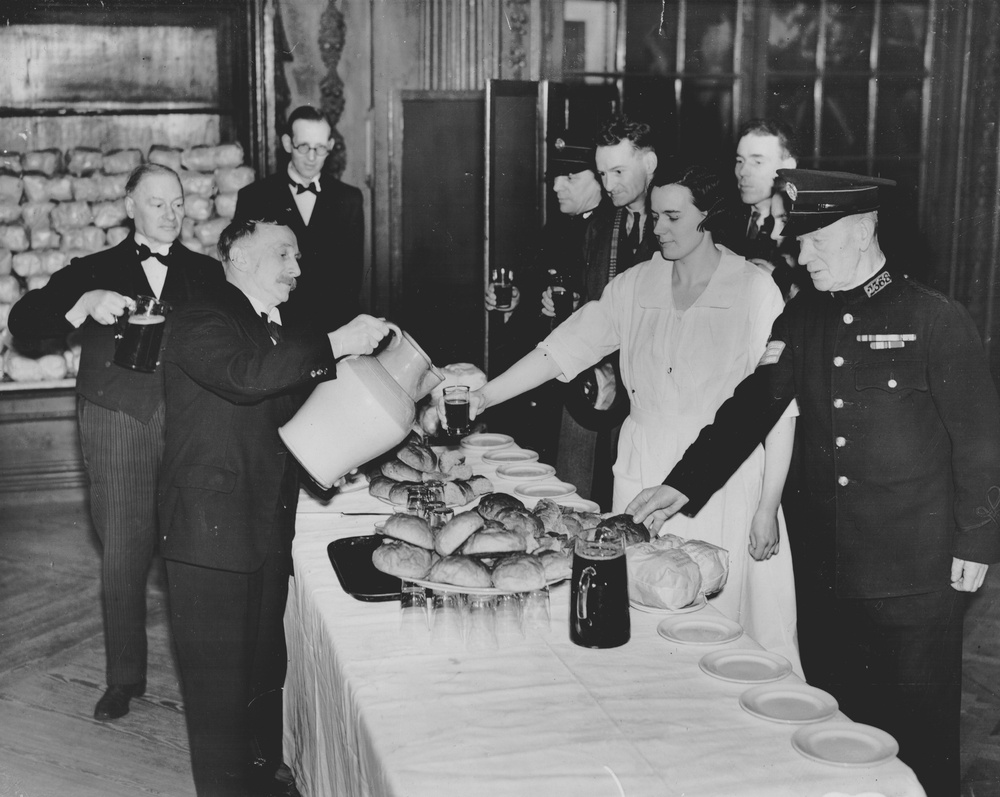
Cakes and Ale: The Reboot
11 FEBRUARY 2021
This year, the Stationers' Company will unite online for a streamed Shrove Tuesday Service, followed by Cakes and Ale via Zoom. Coming together at the start of Lent has been a Stationers' tradition since the early seventeenth century. In 1612, John Norton, bookseller and erstwhile Master of the Company, bequeathed money for 'one sermon be preached in [the Parish Church of St Faith’s under St Paul’s] upon Ash Wednesday yearly for ever', with funds set aside for 'Cakes Wine and Ale after or before the Sermon upon Ash Wednesday.' Although the virtual nature of 2021's ceremony is unprecedented, this is not the first time that the ritual has been modified by historical events.